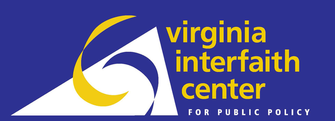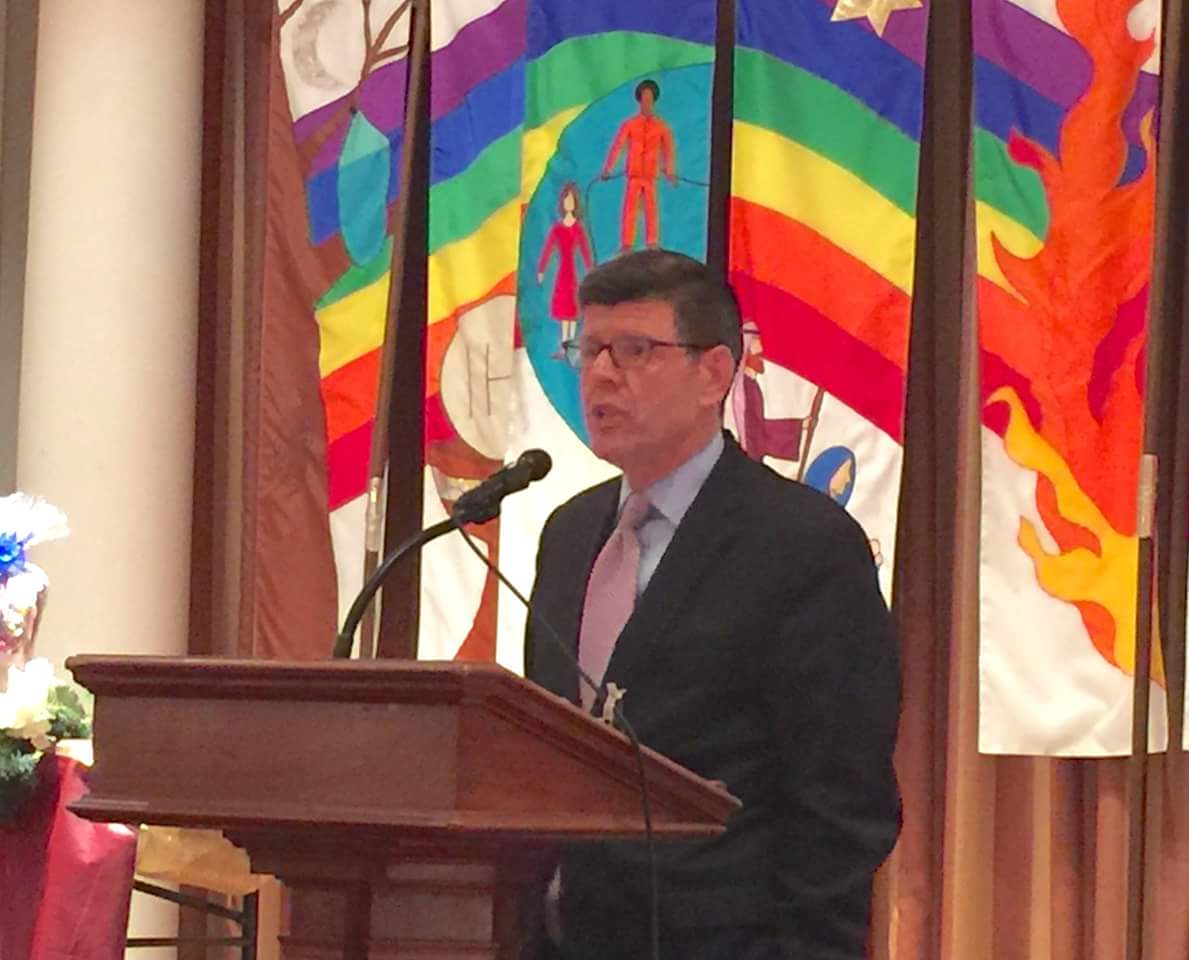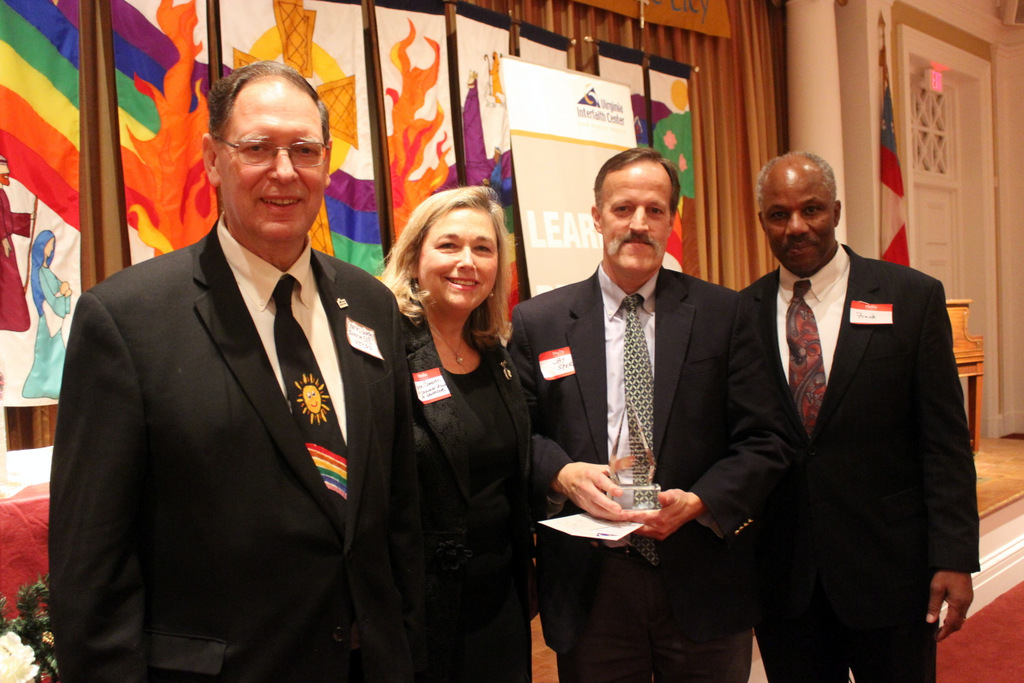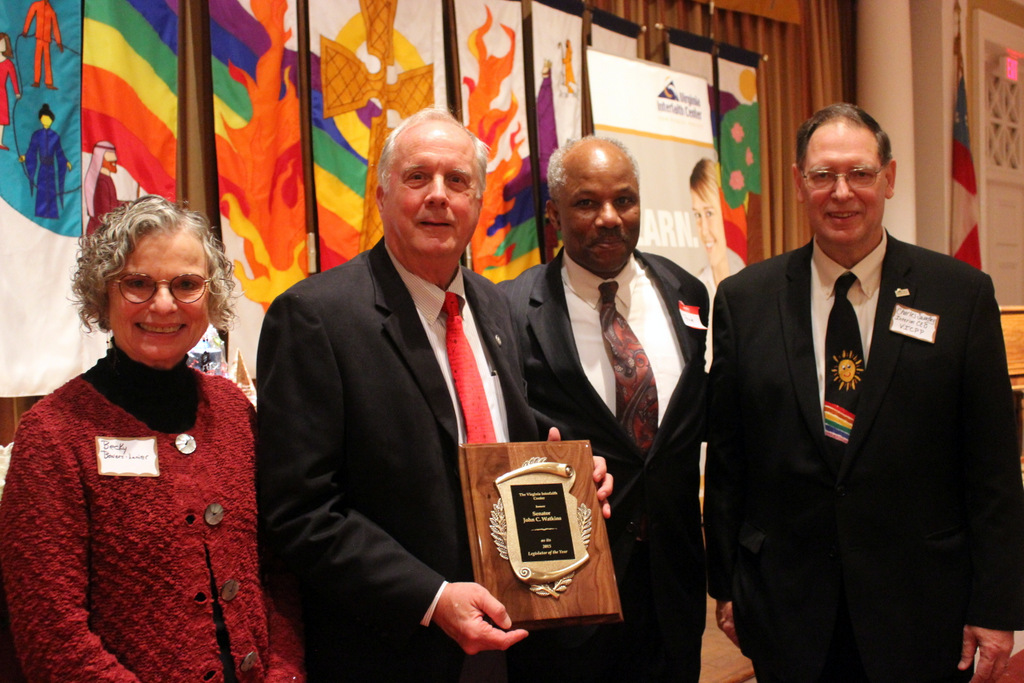Annual Meeting recap – Dec. 8, 2015
Virginia Interfaith Center for Public Policy Annual Meeting attendees heard keynote speaker Michael Cassidy, Executive Director of the Commonwealth Institute, talk about some key issues that the organization is working on currently.
One of those areas of primary focus right now is racial equality.
Cassidy told the story of a young immigrant named Yenet who came to Virginia from Mexico as a small child. She became a student at J. Sargent Reynolds Community College and then at Virginia Commonwealth University paying in-state tuition thanks to a decision by the Attorney General to extend those benefits. But a legislative decision in 2014 threatened to roll back that decision that allowed her to go to school.
“Yenet’s dream is our dream,” Cassidy said at the Dec. 8 meeting, held at St. Paul’s Church beside the State Capitol, “because racial equity not only concerns people of color. Racially equitable solutions improve everyone’s lives. We are all affected by the same public policies – albeit in different ways. Having more educated, more engaged, more productive, healthier ‘Dreamers’ helps me, and my family too. Because if they win, I win. With healthier, more productive neighbors, friends, co-workers, you name it.”
Cassidy also said we need a driver’s license campaign for immigrants in Virginia regardless of their status. “Many other states have adopted driving authorization cards of some sort. Virginia can, too. Why? Because it means these new-comers to our community can become part of our community. They can drive to work and school, go to an ESL class at a community center, or head over for a parent teacher conference at their child’s school; all without fear of being pulled over.”
As for education, Cassidy reminded the audience that Virginia has slashed support for public education, especially for K-12 schools which directly impacted youngsters in the highest levels of poverty and highest number of minority students. Only a handful of states cut more deeply that Virginia, where cuts meant 11,000 fewer staff.
“And it’s all happening at a time that needs are growing, not shrinking. The number of economically disadvantaged students is up about 40 percent, the number of ESL students is up 33 percent and the number of homeless students is up 73 percent since the recession.”
Cassidy touched on health care by saying Medicaid expansion is an opportunity to make progress on health care access. “This is an issue where we could cover 400,000 more if we lifted eligibility for our state Medicaid program to cover more low income folks. … We have an opportunity but it’s being rejected. And it’s an issue of racial equity. That’s because racial minorities in this state disproportionately have lower incomes and disproportionately lack health insurance.”
Finally, Cassidy said our current juvenile justice system is broken, and it’s an issues of racial equity as well.
“African-American youth make up the majority of children in prison in Virginia, even though they don’t make up the majority of youth. And incarceration is expensive: In 2014, it cost $150,994 to incarcerate one youth for one year in a juvenile correctional center, approximately $413.68 per day. And it doesn’t work. The latest three-year reconviction rate for youth released from Virginia juvenile correctional centers is near 75 percent.”
Cassidy also pointed out that families are required to pay child support to the Department of Juvenile Justice for their incarcerated children, which stresses impoverished families’ limited resources.
“We are definitely living in challenging times,” Cassidy said, “but solutions to improve racial equality are out there, despite those loud, divisive voices.”
The Rev. Charles Swadley, interim director of the Center, pointed out the number of important landmarks within a short walk of VICPP’s offices in Shockoe Bottom, which include the Lumpkin’s Jail site, the Holocaust Museum, a historic marker for Francis Asbury’s last sermon, Richmond Hill, the Statue of Reconciliation and the Freedom Center.”
He said the organization’s goals are just, peaceful, equitable and sustainable” policies across the Commonwealth. “We’re working for systematic change.”
Swadley announced a newly redesigned website for the Center, and said that the organization’s Board has agreed to support the raising of the threshold of felony robbery from $200 to $1,500 at the upcoming session of the General Assembly.
About 120 people attended the meeting, which saw VICPP honor State Sen. John Watkins as its 2015 Legislator of the Year. A member of Christ the King Lutheran Church and a lawmaker since 1998, Watkins has been a strong advocate for greater access to healthcare.
The organization’s “Beacon of Light” Award was presented to the Virginia Poverty Law Center, and accepted by Executive Director Jay Speer. That organization is about to celebrate its 40th year, and has been working on various domestic issues including healthcare.
Elected officers for 2016 are Frank McKinney, president; John Copenhaver, vice president; Davis Balderston, secretary; and Julie Swanson, treasurer. The 2016 class of the Board of Directors includes Farhanahz Ellis, Scott Hopkins, Ali Faruk and Debra Gold Linik.
In his opening prayer, Rabbi Gary Creditor made a reference to the recent New York daily News front page following the tragic mass shooting in San Bernardino, Calif., that “Prayer Can’t Help!”
“It is true prayer can’t restrict the sale of automatic weapons, armor piercing bullets, pipe bombs and assault rifles,” Rabbi Creditor said. “(But) Prayer gives us strength. Prayer gives us direction. Prayer gives us courage. .. Prayer is very powerful.
Imam Ammar Annonette closed the meeting with the message that “Faith gives us strength to stand up for our values against overwhelming odds.”
“Stand up for justice as witnesses for God, stand up as witnesses of God for justice,” the Imam added.
-Neill and Lynne Caldwell



